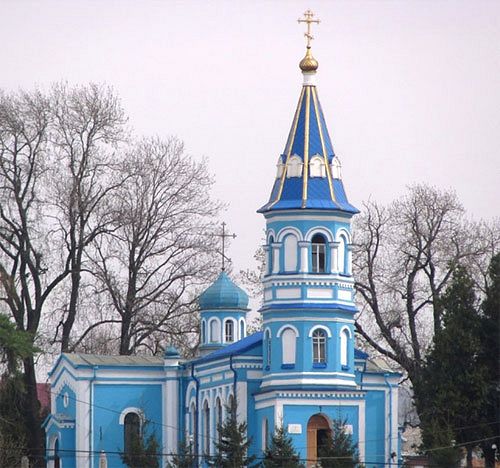North Ossetia to restore worship in Ossetian language
 In preparation for the celebration of the 1100th anniversary of the Baptism of Alania in southern Russia, just north of the border of Georgia, in 2022, the Vladikavkaz Diocese is preparing a complete system of Divine services in the Ossetian language. As Bishop Leonid of Vladikavkaz and Alania reports to TASS, by that time will be translated the foundational liturgical texts and Church hymns.
In preparation for the celebration of the 1100th anniversary of the Baptism of Alania in southern Russia, just north of the border of Georgia, in 2022, the Vladikavkaz Diocese is preparing a complete system of Divine services in the Ossetian language. As Bishop Leonid of Vladikavkaz and Alania reports to TASS, by that time will be translated the foundational liturgical texts and Church hymns.
“For the celebration of the jubilee in 2022, a whole range of measures will be implemented, affecting all spheres of ecclesiastical and culture life, including the restoration and preservation of historical monuments, social projects, and the recreation of the complete system of Divine services in the Ossetian language. The language, history, and culture of the Alan-Ossetians, direct descendants of the Scythian-Sarmatian civilization and one of the most ancient Christian peoples, have attracted and continue to attract the attention of specialists of many countries,” the bishop said.
The diocese is currently creating courses to increase clergy qualifications, where the Ossetian language is taught by philologist-specialists. Work is also underway on the creation of a collection of prayers in the Ossetian language, the Liturgy is being translated, and many churches are already reading the Gospel in Ossetian.
A commission for translating liturgical texts is meeting weekly, including linguists, philologists, clergy, and theologians. The Bible has already been translated into Ossetian.
The Divine Liturgy was celebrated in Ossetian for the first time in 100 years in North Ossetia in the Church of the Nativity of the Theotokos in Vladikavkaz in 2014. Services were previously celebrated in Church Slavonic.
The previous translation of the Liturgy of 1912, which was used in Vladikavkaz churches until the 1917 revolution, has been preserved to this day and is located in the archives of the Vladikavkaz and Alania Diocese.






